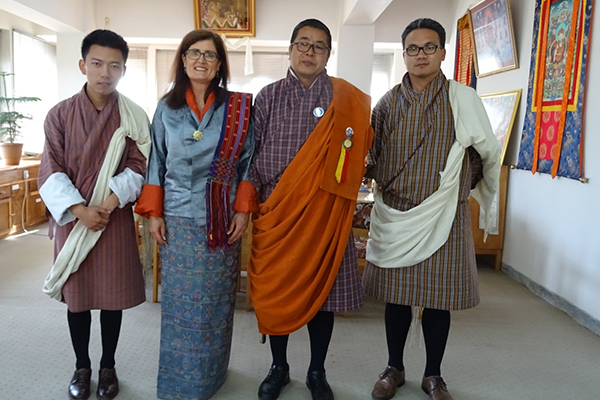31 May 2019
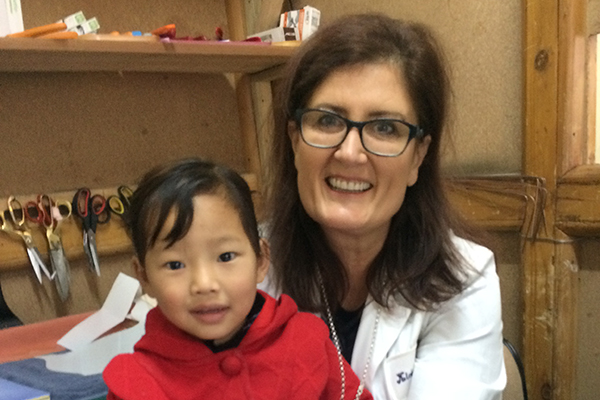
Suzanne Caragianis
Managing Director, SA Hand Therapy
Certified Hand Therapist, Full Member AHTA
Bachelor of Applied Science, Occupational Therapy
The eyes might be the window to the soul, but our hands are the vital tools that allow our minds to act upon the world – to prosper, shape our environment, and in many parts of the world, survive.
Suzanne Caragianis became fascinated with hands in her first anatomy classes at the University of South Australia while studying a Bachelor of Applied Science (Occupational Therapy). Her interest grew and hands became the focus of her over 33-year career, not only trailblazing hand therapy in South Australia, but also making a difference in places around the world needing it most.
“Hands are so complex and intricate, and so important in peoples everyday function and self-expression,” she says.
“They are the tools with which we take care of ourselves, express ourselves, show joy and love. They enable us to create, build, design and communicate. It’s not until someone has an injury or loses function that they realise the significance of their hands.
“If they are damaged it can affect our survival in certain parts of the world. Our communication, our ability to earn a living and care for ourselves and others.”
After graduation, Suzanne followed her interest in hand therapy to the USA to work with Dr Harold Kleinert, one of the fathers of hand surgery.
He had a tremendous impact on her and it was here she also developed a strong desire to support the education of future therapists – especially fellow UniSA Alumni – influencing her own teaching and mentoring style over the past 25 years.
“My mentor Dr Kleinert told me, ‘we have a responsibility to teach all that we know; choose students who you think can be better than you and enable them to be better than you in one way or another’,” she says.
On returning to Australia from the US, Suzanne worked to establish a practice that mirrored Dr Kleinert’s values. Starting with a hand and occupational therapy consulting service in 1991, Suzanne’s business evolved into the SA Hand Therapy practice.
SA Hand Therapy now has five practices around the state and a number of dedicated hand and upper limb therapists, including their resident therapy dog Cooper, specialising in accident, injury, arthritis, nerve & congenital conditions.
“I wanted to establish a hand therapy centre of excellence in Australia that offered best practice, teaching and mentoring to students as well as doing collaborative research,” she says.
“Now we have five sites, a team of amazing talented therapists and two business partners, Michael Janetzki and Jordan Lefmann.”
Suzanne also teaches professional groups and GP’s about complex hand trauma and injuries, diagnosis and treatment. This passion for educating others in hand therapy – particularly in high risk areas – has also led to deep ties with the Indian and Bhutanese therapeutic communities.
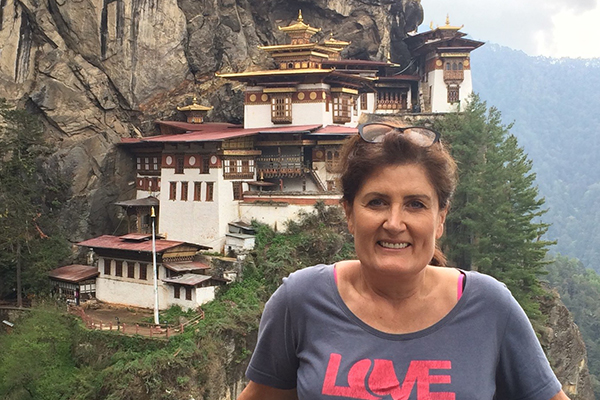
“My medical missionary work in Bhutan began 10 years ago after several years of teaching in India with my dear friend and colleague Dr Raja Sabapathy, who was at the time the President of the Indian Hand Surgery Society,” she says.
“I visited Bhutan and discovered high rates of hand and upper limb injuries and burns from subsistence farming and cooking over an open fire. There was also a high incidence of congenital deformities and children’s injuries.
“At the time there were only four orthopaedic surgeons in Bhutan, no plastic surgeons or any hand surgery unless it was basic salvage procedures or amputation of a limb or finger.
“There were also no Occupational Therapists and the physiotherapy clinic at the main hospital in the capital, Thimphu, had no hand therapy or splinting service or training.”
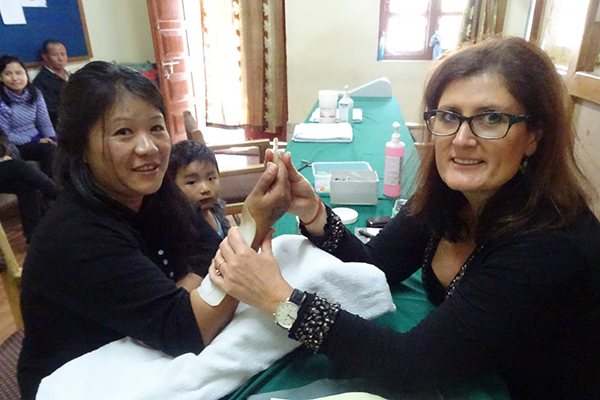
After her first therapy training trip, Suzanne realised the country needed a formal hand therapy clinic to improve recovery for the injured. She set about establishing Helping Hands in Bhutan to facilitate training for medical professionals and therapists.
She also began fundraising to set up the clinic with the right mix of surgical equipment and trainers.
“Part of the program consisted of a continuing education course to teach doctors, surgeons, and therapists about hand and upper limb anatomy and basic hand rehabilitation in Bhutan,” she says.
“In order to get the Royal Government of Bhutan to sponsor and recognise the program, I developed a specialist course and a way of examining attendees so they would champion participants.
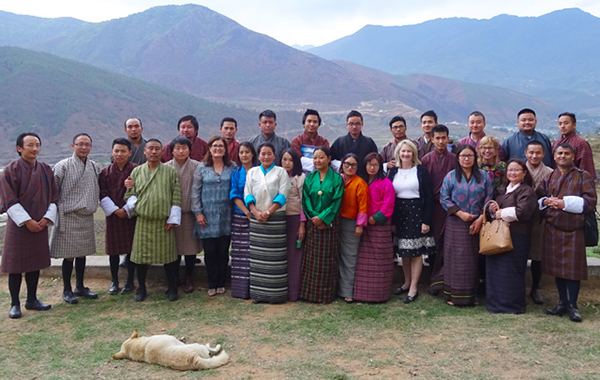
Another enjoyable part of the project has been involving other medical experts in her work, she says, “My friend Dr Philip Griffin – an Adelaide Plastic and Reconstructive Surgeon – offered to work with me on the trips to teach basic hand surgery skills so we could role model a collaborative team of surgeon’s and therapist’s.
“University of South Australia Dean of Research (Health Sciences), Professor Susan Hillier, even assisted in running one of the courses. It’s still talked about many years later!
“Several years ago Dr Griffin and I also approached Interplast Australia and New Zealand to get involved and extend the program. They accepted and have extended the plastic and reconstructive and hand surgery work, sending teams of surgeons, anaesthetists, nurses and hand therapists twice a year."
Suzanne and her project partners have now raised more than $200,000 for the initiative and have established two hand therapy centres in Bhutan.
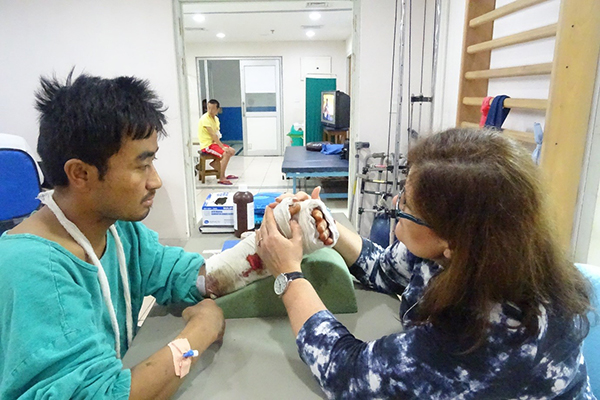
Through this work a number of Bhutanese surgeons and doctors have also been sponsored to broaden their medical knowledge base and attend international conferences.
“I continue to sponsor training in Bhutan and support our hand therapy clinics there. Overall my goal for this work is to develop a sustainable hand program in Bhutan where we enable the Bhutanese medical work force to treat and rehabilitate people who have sustained trauma or have been born with a disability,” she says.
“My next goal is to sponsor the training of an Occupational Therapist at UniSA to help establish OT services in Bhutan.”
For more information on Suzanne’s incredible work and career visit www.sahandtherapy.com.au.
